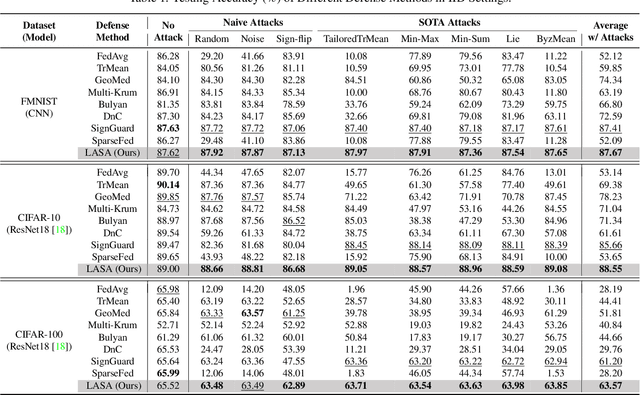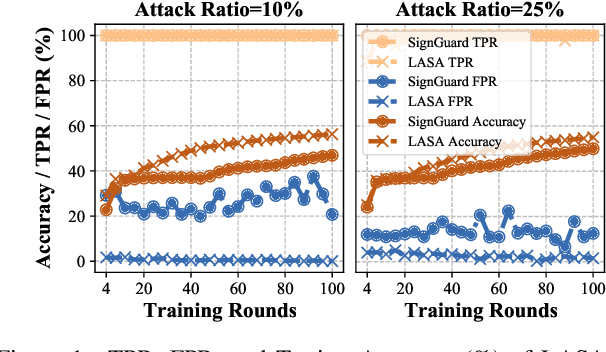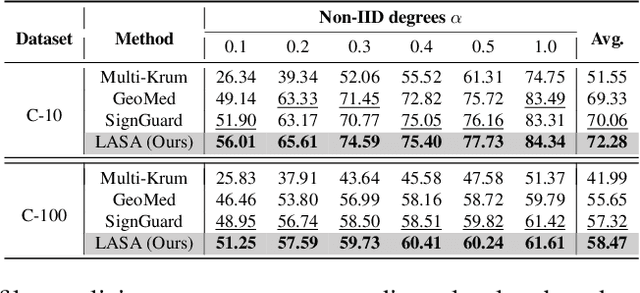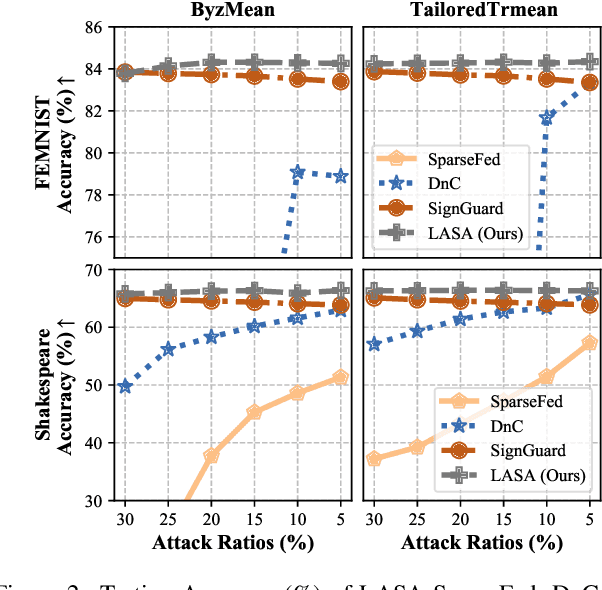Achieving Byzantine-Resilient Federated Learning via Layer-Adaptive Sparsified Model Aggregation
Paper and Code
Sep 02, 2024



Federated Learning (FL) enables multiple clients to collaboratively train a model without sharing their local data. Yet the FL system is vulnerable to well-designed Byzantine attacks, which aim to disrupt the model training process by uploading malicious model updates. Existing robust aggregation rule-based defense methods overlook the diversity of magnitude and direction across different layers of the model updates, resulting in limited robustness performance, particularly in non-IID settings. To address these challenges, we propose the Layer-Adaptive Sparsified Model Aggregation (LASA) approach, which combines pre-aggregation sparsification with layer-wise adaptive aggregation to improve robustness. Specifically, LASA includes a pre-aggregation sparsification module that sparsifies updates from each client before aggregation, reducing the impact of malicious parameters and minimizing the interference from less important parameters for the subsequent filtering process. Based on sparsified updates, a layer-wise adaptive filter then adaptively selects benign layers using both magnitude and direction metrics across all clients for aggregation. We provide the detailed theoretical robustness analysis of LASA and the resilience analysis for the FL integrated with LASA. Extensive experiments are conducted on various IID and non-IID datasets. The numerical results demonstrate the effectiveness of LASA. Code is available at \url{https://github.com/JiiahaoXU/LASA}.
 Add to Chrome
Add to Chrome Add to Firefox
Add to Firefox Add to Edge
Add to Edge